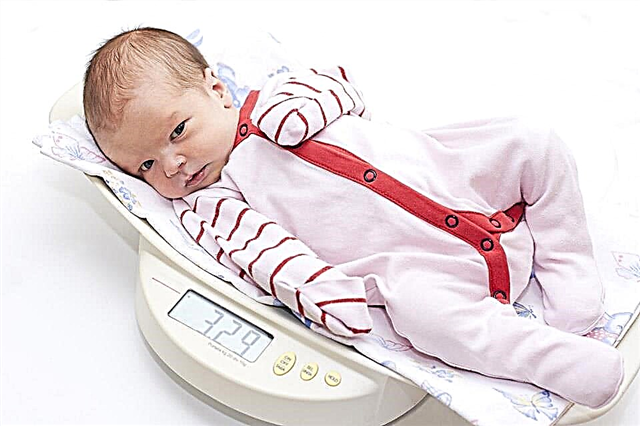
The sooner hearing problems are found in a child, the more favorable the prognosis for treatment and rehabilitation will be. Therefore, parents should carefully observe the ability to hear in a baby. The first signs of auditory dysfunction should be a signal for quick and decisive parenting action.
Signs of violations
Since hearing impairments are congenital and acquired, it is important to control the hearing function in a child at any age. Attentive parents will easily notice that the child has become hard of hearing. The specific warning signs depend on the age of the baby.
In infants hearing loss is the hardest thing to spot because they don't speak yet. But babies who hear well from the age of three months react to new, especially loud sounds - they try to find the source of sounds with their eyes, turning their heads. Unexpected sounds make the baby flinch, reflexively throw up arms and legs.

If a child, based on the results of medical examinations in a maternity hospital and a polyclinic, successfully passed audio testing, this does not mean that the pathology will not appear later.
Therefore, parents of toddlers in the first year of life should be alerted by symptoms such as the lack of an adequate response to sounds of varying volume (there is a reaction only to very harsh sounds and quiet ones are ignored, there is no response to any sounds).
In older children alarming signs of deterioration in auditory function are manifested in the absence of a quick response to addressed words, remarks. Of course, it all depends on the degree of hearing loss, but in general, children often begin to ask again, to clarify. The child is tense, he peers into the lips of the interlocutor so as not to miss what has been said. The child may complain of a strange noise in the ears, not respond to words spoken at normal conversational volume or in a whisper.
Since the state of hearing directly affects speech, children, who for some reason have become worse in perceiving sound information, begin to speak at a slower pace, and also often turn up the volume of the TV if there is something very interesting to them. The child can play with his ears, as well as protrude the auricles, pull them back, trying to catch sounds.


How to check?
If you suspect a child has a hearing problem, it is important to see a doctor as soon as possible. Despite the advice to test it by ear at home, to treat it with folk remedies, there are common otopatologies in which the answer to the question of whether hearing will return depends on the time of assistance, and this time is limited to a few weeks or even days.
You should not try to find the cause of your hearing loss on your own. The best solution would be to contact an ENT doctor.
If an appointment is made to the corresponding doctor, then you need to go to the pediatrician for an urgent appointment. With complaints of a sudden hearing loss, the otolaryngologist will receive a note "cito" (urgently) from a pediatrician out of turn.
There are many diagnostic methods. First of all, the doctor will need to exclude inflammatory diseases of the hearing organs, as well as ENT pathologies, in which hearing can theoretically decrease - otitis media, adenoiditis, ear wax plugs, pathologies of the tympanic membrane, foreign objects in the ear (sometimes children push a wide variety of small details).
With the help of an otoscope, the child is examined directly when contacting the office. After that, in the absence of mechanical or other objective reasons for a decrease in hearing function, the child is assigned visit to the audiologist's office - this specialist assesses the degree of hearing loss, conducts tonal audiometry. This study shows not only the extent of the loss, but also the nature of the loss. For children under 3-4 years old, play tonal audiometry is performed.

Children over 4 years of age conduct an additional study of the perception of whispering and speaking - if the baby does not hear whispered words from 6 meters, asks again or does not respond to them, determine the hearing threshold (from what distance he still picks up and distinguishes them). If you suspect damage to the auditory nerve, the baby is sent to a pediatric neurologist.

Among the studies, not only audiometry is prescribed, but also tympanometry (study of the mobility of the tympanic membrane and the state of the middle ear), radiography of the temporal bones. Only then can we talk about the exact reasons for hearing loss and possible predictions for the future.

Causes
The reasons for the decrease in auditory function can be different - from mechanical barriers in the form of a foreign body or sulfur plug to congenital anomalies in the development of hearing organs.
Congenital hearing loss and deafness children are often hereditary. At the same time, well-hearing mom and dad are not an obstacle to the formation of a fetus with hearing pathology, because the problem is transmitted from grandmothers and grandfathers, both in the dominant and recessive manner. Various unfavorable intrauterine factors can affect a child's hearing. This is especially dangerous during the formation and laying of hearing organs, analyzers and parts of the brain responsible for auditory skills. Dangerous factors include ARVI and influenza, rubella, toxoplasmosis and mumps, suffered by the mother in the first and early second trimester of pregnancy, Rh-conflict, smoking, alcohol and drug intake by the expectant mother.
The reason for the absence or decrease in the ability to hear in the crumbs may be birth trauma.
Congenital hearing pathologies are usually found in the first 2-3 years of a baby's life, although minor defects in the functioning of the child's hearing system can be detected much later.


Acquired hearing impairment - the most common occurrence in childhood. Hearing may decrease temporarily, for example, during otitis media or a runny nose, and in most cases such a decrease is reversible, the ability to hear normally returns in 3-4 weeks after the illness on its own. But also flu, SARS, purulent otitis media, otitis media of the inner ear may well be the cause of the development of persistent hearing impairment.
Irreversible or progressive hearing loss often develops after meningitis, scarlet fever, measles, mumps (mumps). Infections complicated by hearing impairment are the most common damage to the auditory nerve. And inflammatory diseases of the ears - to the defeat of the sound-conducting parts.
In chronic adenoids, if the doctor recommends their removal, and the parents insist on treatment with folk remedies, persistent hearing loss often develops in one or both ears.


Craniocerebral trauma and the use of streptomycin antibacterial drugs (neomycin, monomycin, gentamicin) can also cause hearing loss. These antibiotics are ototoxic.
How to treat?
After the examination, the clinical picture will become clear. Treatment is prescribed depending on the cause.
- With ear plug it is removed, the ear is washed by the doctor, hearing is fully restored. Foreign objects found in the ear are removed, after which hearing is also restored without any treatment.
- But for the most part, unfortunately, the problem of hearing loss is associated with the development of hearing loss. It can be conductive, in which the sound-conducting apparatus suffers. Most often it is associated with pathologies in the outer or middle ear. Sensorineural (sensorineural) hearing loss associated with damage to the sound-receiving apparatus, which includes the auditory nerve, the inner ear, is more often found. Sometimes mixed hearing loss is detected.
The disorder can develop rapidly and be detected by doctors within a few hours.
- Sharp forms - hearing impairment for no more than 28 days.
- Subacute - up to 3 months.
- Chronic pathology is a hearing impairment for more than 3 months.


It is best to treat sudden and acute forms, which is why parents are advised to see a doctor as soon as possible.
The more time has passed since the beginning of the deterioration of hearing function, the less optimistic the doctors' predictions will be - in case of chronic hearing loss, only hearing aids and cochlear implantation surgery help restore hearing, which is not shown to everyone and does not always help.
- For treatment acute and subacute conductive hearing loss usually prescribed medications, physiotherapy. Eardrum pneumomassage is performed, electrophoresis is performed, and the auditory tube is blown.
- When sensorineural hearing loss begin urgent treatment with drugs that improve blood circulation in the inner ear. The introduction of "Prednisolone" in certain dosages helps well if hearing loss is sudden or acute. In the chronic form of the disease, these measures, alas, are ineffective.
- When 2-3 degrees of hearing loss hearing aids are prescribed. If this turns out to be ineffective and the speech intelligibility does not improve, the child constantly asks again in the apparatus, cochlear implantation is recommended.

None of the methods that help rehabilitate a child with hearing impairment with chronic hearing loss leads to a complete recovery. Lost hearing does not return. Doctors consider it a great success to stop the decline in auditory perception at a stable level. And therefore parents should pay great attention to the prevention of such problems:
timely and correctly treat all ENT diseases, do not self-medicate for influenza, SARS;
regularly monitor the behavior and reactions of the child in order to notice possible violations in time;
avoid finding the baby where there are loud and harsh sounds in order to exclude the development of acoustic trauma;
teach the child to take good care of their ears - do not push toys and parts into them, do not clean them with sharp objects, monitor the hygiene of the hearing organs.




